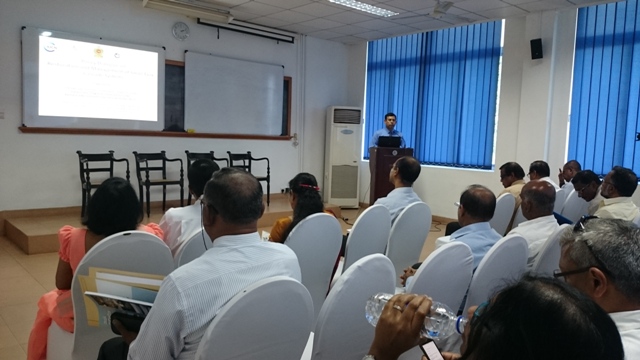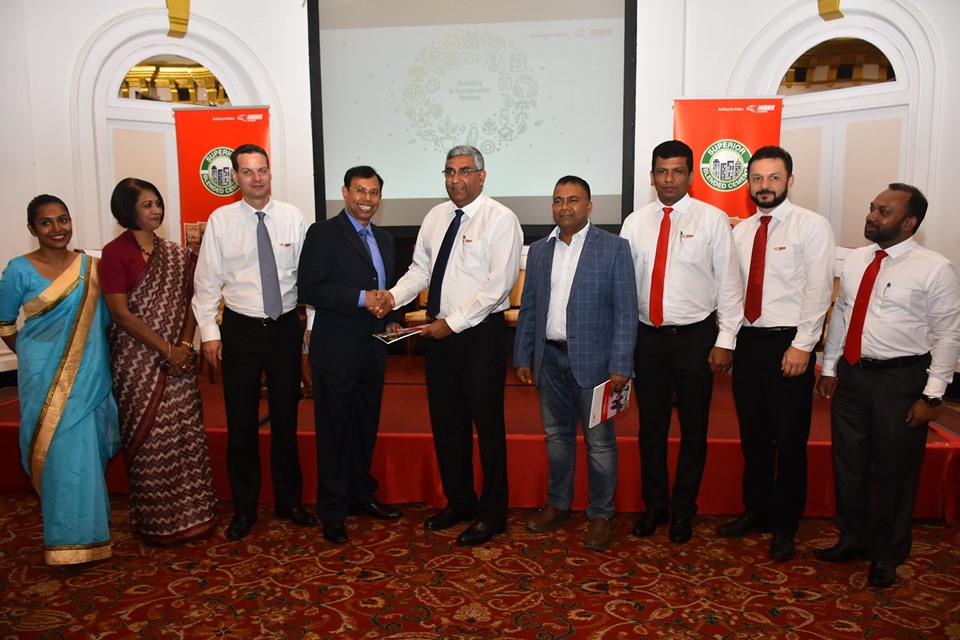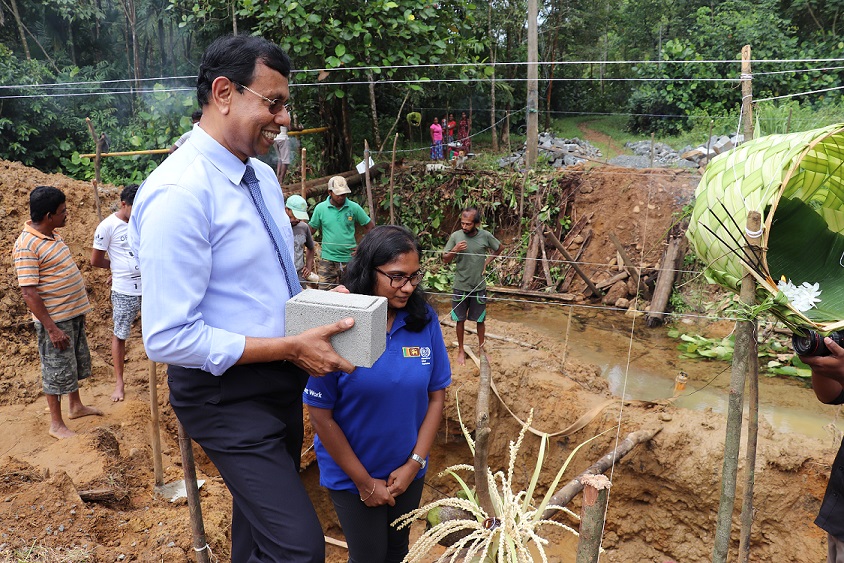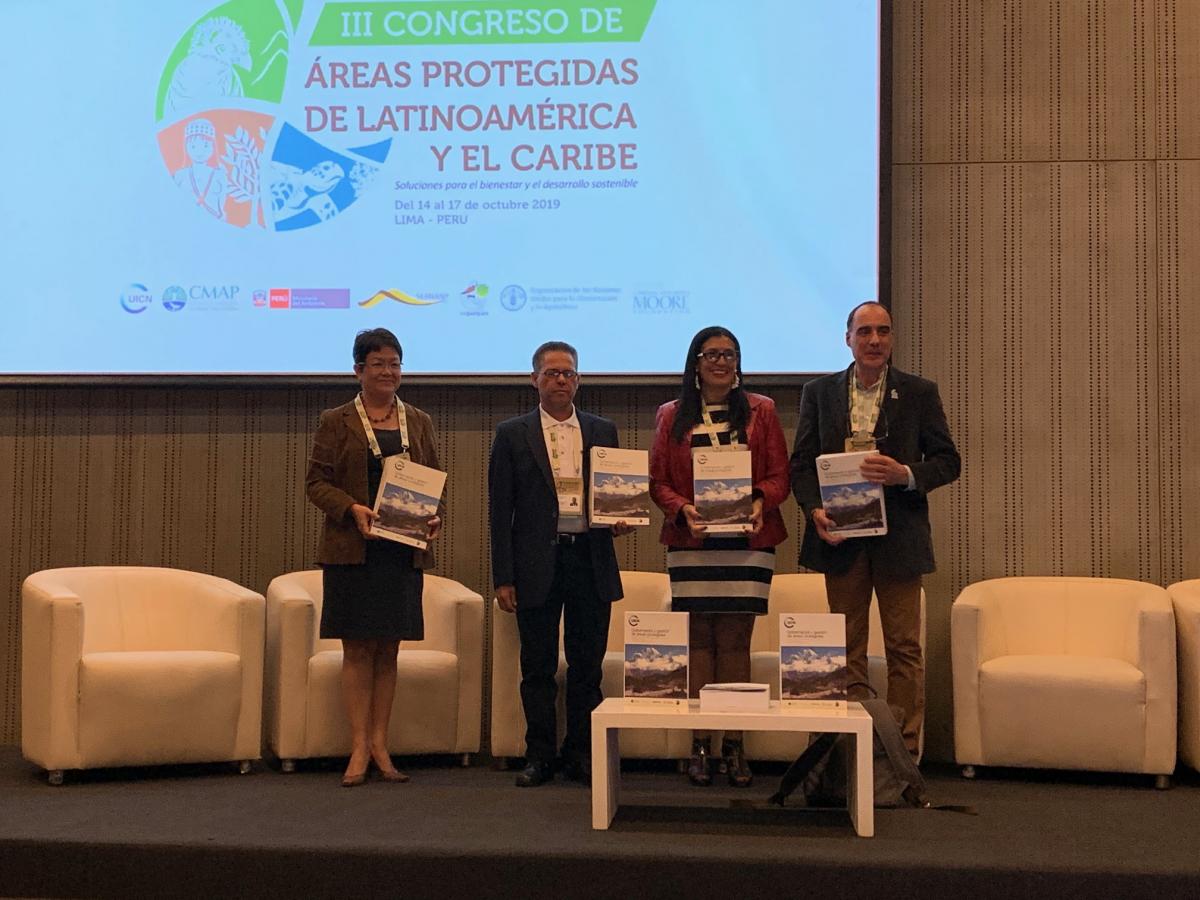Policy dialogue on ecological restoration and sustainable management of small tank cascade systems in Sri Lanka
Ancient irrigation tanks in the dry zone of Sri Lanka play a vital role in economic, social, cultural and environmental aspects in the country. There are about 14,000 small tanks and 13,000 anicuts, feeding an extent of about 246,000 hectares, approximately 39% of the total irrigable area. In most cases, these tanks are designed to function as interconnected clusters within hydrological boundaries, often referred to as “cascade systems.” With time and changing land uses these tank systems have lost their function as “integrated socio-ecological systems” and thereby the intended water use efficiency and disaster risk reduction. Ecological restoration of these tanks could improve food security and disaster risks and support human development, including our ability to meet modern day climate-induced challenges.

Dr Ananda Mallawatantri addressing the distinguished participants
Photo: IUCN Sri Lanka
Understanding the critical need to develop an ecological approach to restore small tanks, IUCN partnered with the Department of Agrarian Development (DAD) in 2013. The process harnessed the traditional and modern knowledge and guided by a strong National Consultative Committee of experts. A 3-year pilot project on 'Ecological Restoration' was successfully completed in 2016 in the Kapiriggama Cascade System in the Anuradhapura District with funding from the HSBC Water Programme through HSBC Sri Lanka. The final outcome was an up-scalable, multi-disciplinary, multi-stakeholder, transparent and scientific approach implemented and owned by communities with the active involvement of government-mandated agencies.
To share this unique experience and consolidate the approach for national use at policy and implementation levels, IUCN and DAD, together with Bandaranaike Centre for International Studies (BCIS), conducted a policy dialogue on 'Ecological Restoration and Sustainable Management of Small Tank Cascade Systems' on February 14 at BCIS in Colombo.
Dr. P.B. Dharmasena, IUCN’s lead technical expert of the Kapiriggama cascade restoration project, described the evolution, present status and future scenarios of small tank cascades. The present context of small tank restoration was discussed by Eng. Prabath Witharana, Head of the Water Management Division of the Department of Agrarian Development. Mr. Shamen Vidanage, Programme Coordinator of IUCN Sri Lanka, shared the lessons of IUCN-HSBC-DAD project.
Several distinguished invitees including the Secretaries and Additional Secretaries of the Ministries of Agriculture, Irrigation and Water Resources Management and Mahaweli Development and Environment; senior staff of ministries, departments and other agencies related to Environment, Agriculture, Irrigation and Sustainable Development; representatives of the Prime Minister's Office; experts on small tank cascades; international organizations and representatives from media agencies participated. The event was moderated by Dr. Ananda Mallawatantri, the Country Representative of IUCN Sri Lanka.
The dialogue deliberated on a number of recommendations that can be used in restoration and sustainable management of over 1,100 cascades identified to date.



